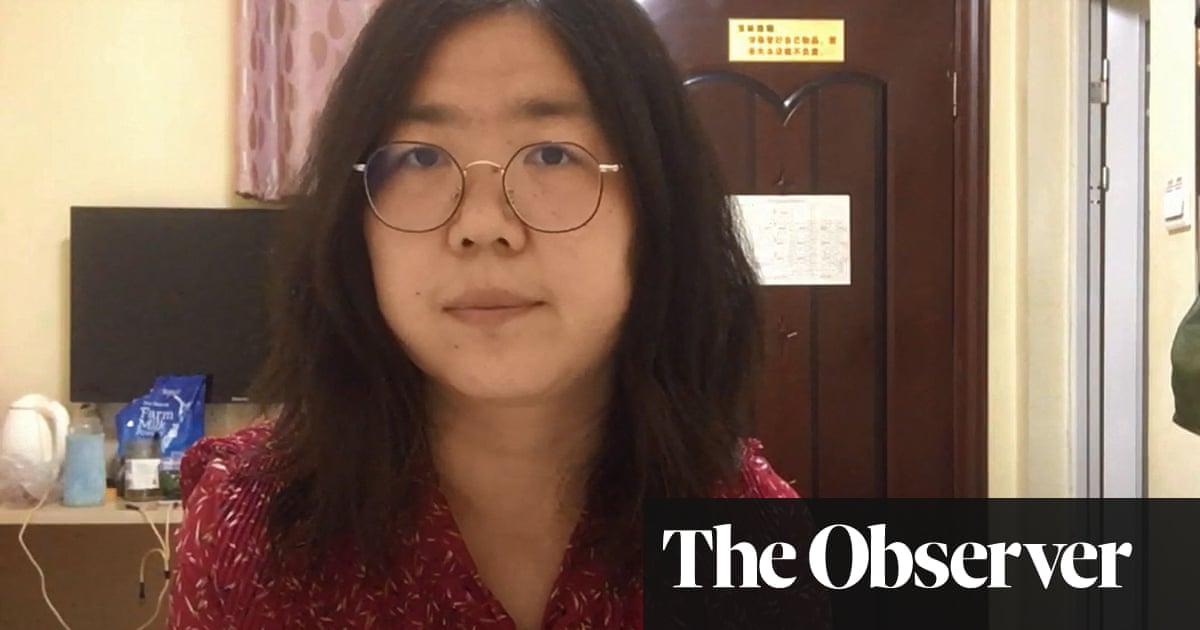- cross-posted to:
- globalnews@lemmy.zip
- cross-posted to:
- globalnews@lemmy.zip
Citizen journalist Zhang Zhan’s search for the truth during the early days of the pandemic was seen as a threat by the authorities
A Chinese citizen journalist who has been in prison for four years after reporting on the early days of the Covid-19 epidemic in Wuhan is due to be released on Monday.
Zhang Zhan, a former lawyer, travelled to Wuhan in February 2020 to document the Chinese government’s response to what became the start of a global pandemic. She shared her reports on X (then known as Twitter), YouTube and WeChat. She was one of the few independent Chinese reporters on the ground as Wuhan and the rest of China went into lockdown.
In one video, recorded in February 2020, Zhang said: “I can’t find anything to say except that the city is paralysed because everything is under cover. That’s what this country is facing now … They imprison us in the name of pandemic prevention and restrict our freedom. We must not talk to strangers, it’s dangerous. So without the truth, everything is meaningless. If we cannot get to the truth, if we cannot break the monopoly of the truth, the world means nothing to us.”
In another video, she showed a hospital that was overflowing with patients on trolleys in the hallway.



Was there a huge amount of doctors sick or did these guys just get disappeared?
COVID was killing a lot of medical personnel initially because they weren’t using the right PPE and got infected with a large initial viral load.
How quickly people forget how major metro hospitals in the US had rows of refrigerated semi trailers because there were too many bodies
How doctors and nurses were told to wash and reuse their N95s despite it being proven to compromise their effectiveness because supplies were so low
I hope this bird flu shit blows up even worse, maybe then these dumbasses will get the message
They’ll never learn. They told us to bang pots and pans for them, and now a few years later they’re still underpaid and overworked the world over. Same goes for every other ‘essential worker’.
Oh I never washed mine. Just kept it in a plastic bag and wore it till the straps broke.
Edit: downvotes make me laugh. For context, I was a pre vaccine nurse on a COVID unit for the duration of the pandemic. Never did catch it though from the hospital.
Also wore a plastic face shield that I washed every time I left the room with bleach. Thankfully COVID is droplet spread so that’s plenty ppe. I wouldn’t have wanted to wear that N95 in a TB room though.
But the majority of deaths were always old people.
Younger people got damaged lungs but dying was a rarity.
Early in the pandemic the rate of death was much higher than it is now. That’s because nobody had immunity and we didn’t know how to treat people with covid. Doctors treating the initial outbreak were also probably exposed to a large dose of virus all at once making their survival less likely.